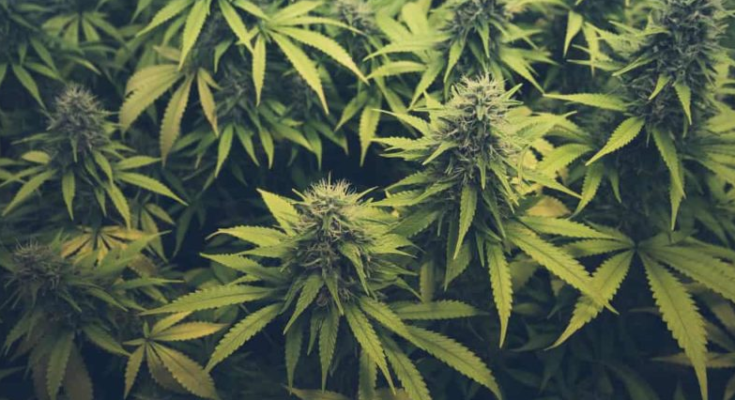As 2021 comes to a close, a number of states and cities across the country are set to implement new marijuana policy changes that take effect on January 1.
From the launch of retail cannabis sales in Montana to whole-flower medical marijuana becoming available in Louisiana, there are a variety of new policies that advocates, businesses and lawmakers will see go into effect starting on Saturday.
Legislators might already be turning their attention to advancing additional reforms in 2022, but here’s what you need to know about what’s already changing at the start of the new year:
Montana
Retail marijuana sales for adults 21 and older start in Montana on January 1—the result of a 2020 voter-approved initiative and the work of lawmakers to finalize rules for the program.
Adults will be able to purchase up to one ounce of cannabis at a time. Marijuana products will be taxed at 20 percent, and some local jurisdictions have chosen to impose an additional three percent tax.
Gov. Greg Gianforte (R) signed a bill in March to implement legalization after voters approved the reform at the ballot last year. A legislative panel then approved rules for the adult-use program earlier this month.
Louisiana
Louisiana lawmakers took up numerous cannabis reform proposals during the 2021 session, including one to decriminalize marijuana that took effect in August. Another new law that goes into effect on January 1 would vastly expand the state’s medical cannabis program by giving patients access to flower marijuana products.
As it currently stands, patients are able to vaporize cannabis preparations via a “metered-dose inhaler,” but they cannot access whole-plant flower and smoking is not allowed.
An effort in the legislature to pass a bill to legalize recreational cannabis stalled in the House this session after the chamber failed to pass a complementary measure on taxing adult-use marijuana. Gov. John Bel Edwards (D) did say in May, however, that he believes the reform “is going to happen in Louisiana eventually.”
California
California Gov. Gavin Newsom (D) signed a bill in September that will require hospitals to permit medical marijuana use by certain patients. That goes into effect on Saturday.
The bill’s sponsor, Sen. Ben Hueso (D), had been pushing for his measure to allow cannabis use in medical facilities for terminally ill patients over multiple sessions. Newsom vetoed an earlier version out of concern about potential federal repercussions for medical institutions that permitted such consumption, but those concerns were evidently assuaged.
A leading marijuana advocacy group recently launched a push to ensure that all California medical facilities are prepared for the implementation of the new law.
Colorado
As of January 1, Colorado medical marijuana patients will be limited to purchasing up to eight grams of concentrate per day. The previous limit was 40 grams of concentrate daily.
The law taking effect represents one of the most significant changes to the states medical cannabis program since its enactment, with the intent of deterring people from using high potency products. A patient will be able to buy more than the daily limit if a doctor certifies that it’s medically necessary and they have a designated primary dispensary to obtain the medicine.
Dispensaries will also be required to provide educational materials to patients, including a pamphlet that will be distributed at the point of sale to provide guidance and warnings about the use of marijuana concentrates. Additionally, medical cannabis businesses couldn’t advertise directly to people aged 18 to 20, and any advertising for concentrates will have to include a warning about the risks of overconsumption.
Arkansas
Two cannabis measures will be effective in Arkansas starting on January 1.
The first will allow out-of-state medical marijuana patients to access the state’s program and purchase cannabis for up to 90 days. The other will make it so doctors can issue medical marijuana recommendations via telehealth services.
Meanwhile, there are several efforts underway in the state to place the question of cannabis legalization before voters on the 2022 ballot.
Philadelphia, Pennsylvania
Starting on January 1, many employers in Philadelphia will no longer be able to require applicants to be drug tested for marijuana as a condition of their employment.
The local policy—which is similar to rules that are in place in New York—is being implemented as state lawmakers work to advance other cannabis reforms, including legalization, in Pennsylvania. There are exemptions to the new policy, however, for law enforcement personnel, people with a commercial driving license and those caring for medical patients, children and people with disabilities.
Philadelphia voters separately approved a ballot referendum last month that urges state lawmakers to enact legalization. (source: Marijuana Moment)









